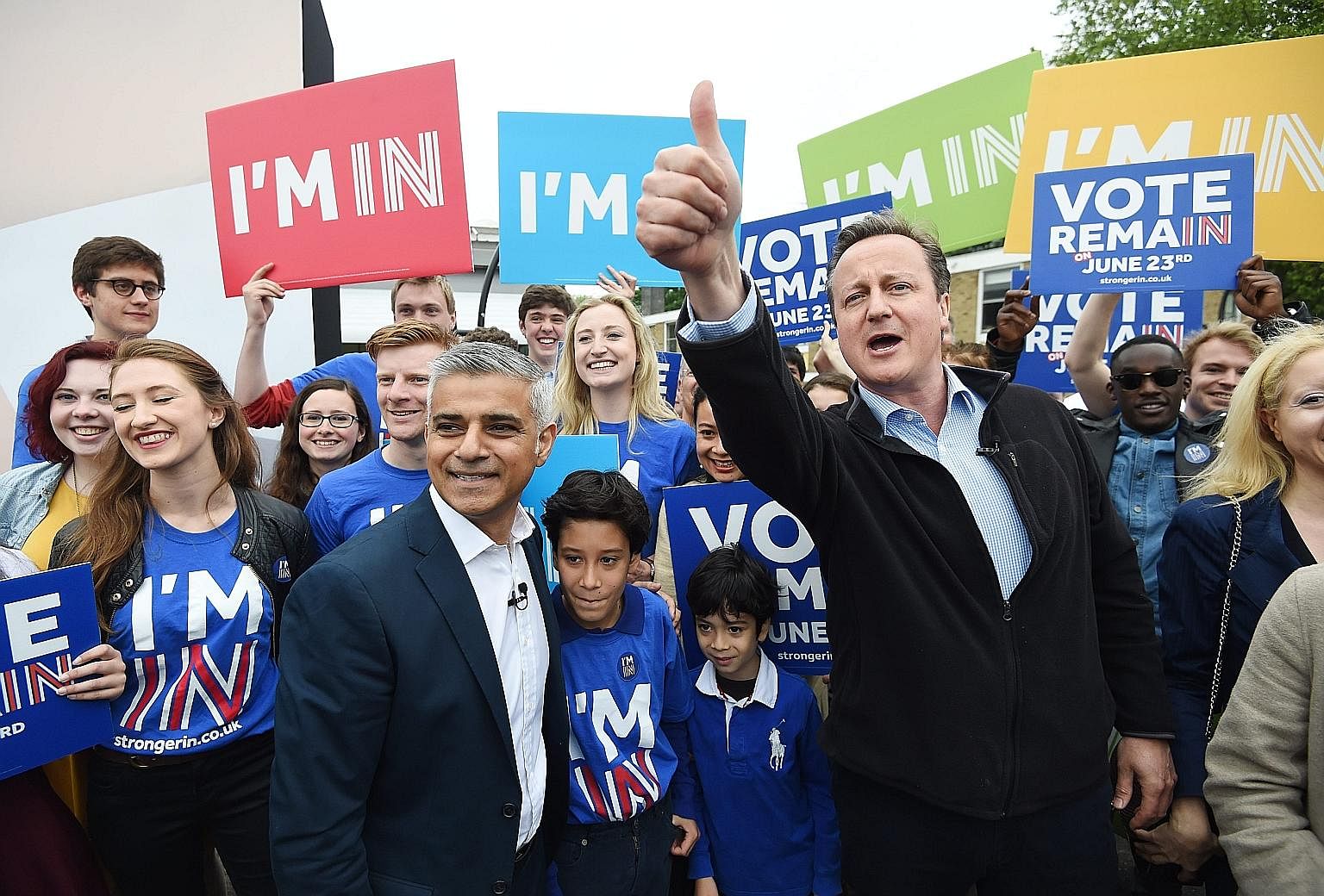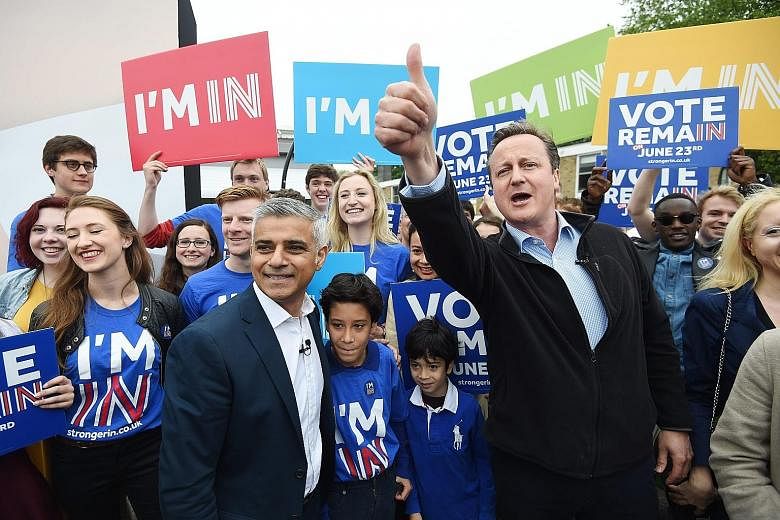British Prime Minister David Cameron has been warned by key members of his ruling Conservative Party that he faces a leadership challenge regardless of whether the country votes to leave or remain in the European Union (EU) in a referendum on June 23.
While all those who speak against Mr Cameron are known long-time rebels, their aggressive and increasingly open defiance of the Prime Minister is evidence that the EU referendum, designed to heal Britain's political divide, is now morphing into a very personal struggle for power which may tear the Conservatives apart.
Mr Cameron has shrugged off attacks from Ms Nadine Dorries, a rebel MP who was once suspended for neglecting her parliamentary duties in order to take part in an Australian reality TV show.
Her recent accusation that the Prime Minister has "lied profoundly" about Europe and her prediction that Mr Cameron would be "toast within days" after the EU referendum were dismissed by officials at Downing Street as part of "the expected noise".
Still, Ms Dorries is one of the few Conservative MPs with a working-class background in a party which is otherwise famous for wealth and privilege, so her renewed personal attacks on a prime minister she once famously slammed as a "posh boy" who would not know the price of milk hurt.
So did her explicit reference to a procedure inside the Conservative Party under which a leadership election is automatically triggered if 50 of its MPs write to their parliamentary leader demanding it. "My letter is already in," she told journalists.

Meanwhile, Mr Boris Johnson, who until recently was London mayor, and Justice Minister Michael Gove have intensified their own attacks on Mr Cameron over his failure to control immigration.
Mr Johnson and Mr Gove, who are the leading Brexiters - as advocates of Britain's exit from the EU are known - claimed that Mr Cameron's inability to bring net migration below 100,000 a year, as the Conservatives promised in their election manifesto last year, was "corrosive of public trust".
In effect, the two are inviting Conservatives to consider an alternative leader.
Other rebels are issuing even more blood-curdling threats. "I don't want to stab the Prime Minister in the back - I want to stab him in the front so I can see the expression on his face," a Conservative MP who refused to be named told The Sunday Times newspaper.
Much of the Brexiters' anger is directed at what they regard as the Prime Minister's unfair use of the government's resources to persuade people to vote for Britain to stay in the EU.
The government spent £9 million (S$18 million) on a leaflet that was supposed to inform every household of all the referendum options, but which ended up arguing that Britain was better off inside the EU. The Treasury spent an unspecified additional amount on a financial report which came to the same conclusion. Brexiters hold Mr Cameron personally responsible for what they regard as misuse of taxpayers' money.
They are also infuriated by the government's habit of dismissing Brexit supporters as "economically illiterate" - Finance Minister George Osborne's favourite phrase - or as "people from La-La Land", as Mr Andy Coulson, the PR guru who was the architect of Mr Cameron's electoral victories, recently put it.
Brexiters feel that they are only responding to reprehensible personal attacks from Mr Cameron and his associates.
But in attacking the Prime Minister, the Brexiters are also pursuing a more precise political objective. Current opinion polls predict that those who wish Britain to stay in the EU will prevail in the referendum, albeit with a wafer-thin majority of around 52 per cent.
By starting to claim that such a small majority won't be enough to prevent a leadership challenge, opponents of the EU are preparing for the day after the vote; in effect, they are serving notice that the referendum is merely one battle in a longer war.
Mr Cameron has the support he needs to survive this personal challenge even if he has to stand for re-election as party leader. His biggest fear is that the EU rebels could then paralyse the government, which enjoys an overall majority of only 12 in Parliament. Something very similar happened to the Conservative government of Mr John Major during the 1990s.
Either way, the irony of the situation is not lost on anyone in London. Mr Cameron called the referendum in order to end Britain's interminable debates about Europe and heal divisions within his party. He has already failed on both counts.


